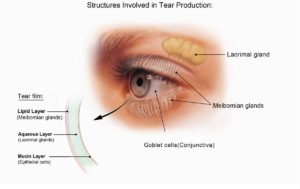New Bern, NC - We are in the midst of what are supposed to be  some of the happiest times of the year: Halloween, Thanksgiving, Christmas, Hanukah, and New Year’s Day – to name a few. Maybe a birthday or an anniversary will be added to the mix. Some of us, however, may be caught up in the poignancy of All Saints’ Day Memorials – remembering those who have passed away in the last
some of the happiest times of the year: Halloween, Thanksgiving, Christmas, Hanukah, and New Year’s Day – to name a few. Maybe a birthday or an anniversary will be added to the mix. Some of us, however, may be caught up in the poignancy of All Saints’ Day Memorials – remembering those who have passed away in the last  year – or in Veterans’ Day tributes to those who have given their all for us in battles of war.
year – or in Veterans’ Day tributes to those who have given their all for us in battles of war.
Still others are recovering from the storms and insults of life, or people who have left us feeling wreaked and gutted.
Whether it was Hurricane Florence or bitter family disputes that  may have resulted in the physical and emotional rugs being jerked out from under us, many of us are just trying to suck in all of our emotions.
may have resulted in the physical and emotional rugs being jerked out from under us, many of us are just trying to suck in all of our emotions.
Stiff upper lip and all of that.
 But is that the right approach?
But is that the right approach?
Wisdom from the old adage about “a good cry will do you good” goes way beyond recognizing that a few moments of catharsis just feels good. There’s actual science behind this!
Here’s a summary of today’s research. Sources are cited at the conclusion of this post.
Tears are produced round-the-clock; in fact, our lacrimal glands  produce about 10 ounces of tears a day and 30 gallons a year. Toddlers probably exceed that.
produce about 10 ounces of tears a day and 30 gallons a year. Toddlers probably exceed that.
There are three types of tears:
Basal tears – the protein-rich ones that are produced to provide moisturizing and antimicrobial benefits with each blink.
Reflex tears – the kind that happen as a natural reaction to irritants  such as dust, wind, or onions.
such as dust, wind, or onions.
Emotional tears – these are the ones we are talking about with crying. Crying is a natural human response to stress.
Turns out, tears have many physiological and psychological benefits from the chemicals they contain:
 Tears release toxins from the body – The tears we release when crying actually wash away the chemicals that raise the stress hormone (cortisol) inside of us. Other chemicals found in our emotional tears include the “feel good” hormones, called endorphins, that help to decrease pain.
Tears release toxins from the body – The tears we release when crying actually wash away the chemicals that raise the stress hormone (cortisol) inside of us. Other chemicals found in our emotional tears include the “feel good” hormones, called endorphins, that help to decrease pain.
Chemicals in tears can kill bacteria – The antimicrobial properties in tears are so strong, they can destroy the cell wall of bacteria, and  have been shown to help kill anthrax.
have been shown to help kill anthrax.
Tears improve vision – Who hasn’t noticed their blurry vision improve with the addition of moisture?
Tears improve our moods – Thanks to their hormone rich content – the happy, feel good, and pain-relieving hormones, oxytocin and endorphins, tears have been shown to work better than an antidepressant for self-soothing and mood elevation according to a 2008 study.
 Tears relieve stress – Stress activates our Sympathetic Nervous System or our fight-or-flight response. Tears counter that by activating our calming system called the Parasympathetic System. Again, our tears cause the stress hormones and toxins to wash away, thereby reducing tension. As one article pointed out, tears are certainly a healthier option to punching a brick wall and cause no physical injury, no headaches, and do not contribute to higher blood pressures.
Tears relieve stress – Stress activates our Sympathetic Nervous System or our fight-or-flight response. Tears counter that by activating our calming system called the Parasympathetic System. Again, our tears cause the stress hormones and toxins to wash away, thereby reducing tension. As one article pointed out, tears are certainly a healthier option to punching a brick wall and cause no physical injury, no headaches, and do not contribute to higher blood pressures.
Tears can enhance communication – Tears can defuse tense  moments and can put an emphasis on the emotional component of a verbal exchange.
moments and can put an emphasis on the emotional component of a verbal exchange.
So, like so many seemingly exclusively emotional things, tears in crying are the result of a build-up of stress in our body. This stress is not just in our heads, it’s physically in our bodies in the form of real hands-on hormones and toxins.
A good cry helps to physically wash those bad guys from our system and allows for the addition of feel-good and pain-relieving hormones. It’s that simple.
 If you aren’t going to be home for Christmas; if your family does not look like a Norman Rockwell painting; if you are going to spend the first holidays without a special someone; chances are, a good cry may come your way.
If you aren’t going to be home for Christmas; if your family does not look like a Norman Rockwell painting; if you are going to spend the first holidays without a special someone; chances are, a good cry may come your way.
That’s okay.
Hallmark movies are great opportunities to shed a self-focused tear or two. But my wish for you and myself is to make an extra effort to reach out to  others in similar circumstances (or worse) and be a light in the darkness for them. Call others on a whim. Surprise an acquaintance with a small gift or flower, or physically be there for someone in need.
others in similar circumstances (or worse) and be a light in the darkness for them. Call others on a whim. Surprise an acquaintance with a small gift or flower, or physically be there for someone in need.
Now, if you find yourself crying all of the time for no apparent reason, or if it’s uncontrollable, you may need more than another  box of Kleenex. You may need to see the doctor. Be alert for signs of depression in yourself or others which will also include some, or all, of the following indicators:
box of Kleenex. You may need to see the doctor. Be alert for signs of depression in yourself or others which will also include some, or all, of the following indicators:
- Trouble concentrating or focusing your thoughts
- Trouble making even small decisions
- Extra fatigue or loss of energy
- Feelings of worthlessness, guilt, or helplessness
- Feeling hopeless
- Sleeping too much or not enough
- Once pleasurable activities no longer give you pleasure
- Over- or under- eating
- Unexplained aches and pains
- Anxiety that does not go away
- Suicidal thoughts or self-harming actions
 Depression will not be fixed by a good cry. Depression is not fixed by “pulling up your own boot straps.” If you see yourself in the list above, please make contacting a physician a priority. You do not have to feel like that. There is help!
Depression will not be fixed by a good cry. Depression is not fixed by “pulling up your own boot straps.” If you see yourself in the list above, please make contacting a physician a priority. You do not have to feel like that. There is help!

Enjoy your pumpkin. Enjoy your turkey. And, yes, enjoy the benefits of a good cry. We all need to indulge once in a while!
In health-
Deidre
Medicaldaily.com, Lizette Borreli, May 19, 2015
Psychologytoday.com, Judith Orloff, MD, July 27, 2010
Medicalnewstoday.com, Lena Burgess, October, 7, 2017


Once again your words have found such relevance in my life lately. Thanks for the reminder that a good cry is good for the soul ❤️
Glad this was on target for you. You are going through a grinder of schooling and making that work with the rest of your life can definitely cause some watershed. Hang in there.